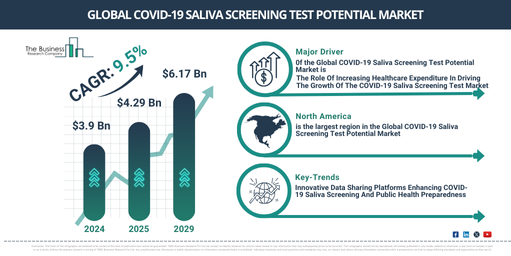How Is The Fitness Tracker Market Expected To Grow Through 2024-2033
The Business Research Company’s global market reports are now updated with the latest market sizing information for the year 2024 and forecasted to 2033
According to The Business Research Company’s Fitness Tracker Global Market Report 2024, the fitness tracker market is expected to show promising growth in the forecast period.
The fitness tracker market has experienced remarkable growth, with the market size catapulting from $47.65 billion in 2023 to $57.77 billion in 2024, showcasing a commendable compound annual growth rate (CAGR) of 21.2%. This growth in the historic period can be attributed to the increased awareness of health and fitness, a shift towards wellness and preventive health, the demand for weight management, health insurance, corporate wellness, and the surge in sports and athletic trends.
Key Figures:
- Market Size in 2023: $47.65 billion
- Projected Growth Rate (CAGR): 21.2%
- Forecasted Market Size in 2024: $57.77 billion
Upcoming Horizon: Anticipated Growth and Influencing Factors
The fitness tracker market is poised for rapid expansion in the next few years, with a projected size of $116.48 billion in 2028, reflecting a CAGR of 19.2%. The growth in the forecast period is driven by factors such as sleep tracking and wellness, senior and elderly fitness, pediatric fitness trackers, ecosystem integration, and mental health monitoring. Notable trends in this period encompass wearable ECG and health tracking, remote health monitoring, AI, and data analytics, customization and personalization, and an increased emphasis on fashion and design.
Projected Market Size in 2028: $116.48 billion
Health Disorders Propel Fitness Tracker Adoption
The rising incidence of health disorders is a significant factor fueling the growth of the fitness tracker market. Health disorders, with known physical causes and visible psychopathology, contribute to 74% of 41 million global deaths annually, as highlighted by the World Health Organization. Fitness trackers play a pivotal role in daily physical activity, aiding in the prevention of various health disorders, making them an essential tool in the pursuit of a healthier lifestyle.
Key Data:
- 74% of global deaths caused by non-communicable diseases (NCDs) or chronic diseases
- Major causes: Cardiovascular diseases, cancer, chronic respiratory diseases, diabetes
Market Players: Dominance in the Fitness Tracker Arena
Several major companies operate in the fitness tracker market, each playing a crucial role in shaping its trajectory. Prominent players include Fitbit Inc., Apple Inc., Garmin Ltd., Google LLC, Huawei Technologies Co. Ltd., NIKE Inc., Samsung Electronics Co. Ltd., and many others. These industry leaders contribute to innovation and drive the market forward.
Key Companies:
- Fitbit Inc.
- Apple Inc.
- Garmin Ltd.
- Google LLC
- Huawei Technologies Co. Ltd.
- NIKE Inc.
- Samsung Electronics Co. Ltd.
View More On The Fitness Tracker Market Report 2024 – https://www.thebusinessresearchcompany.com/report/fitness-tracker-global-market-report
Technological Marvels: Advancements in Fitness Tracking
Technological innovation stands out as a key trend propelling the fitness tracker market forward. Companies are actively engaging in advancements to maintain their market positions. An illustrative example is Fitbit’s launch of Fitbit Luxe, a fashion-forward health and wellness tracker with features like heart and sleep tracking, stress management, and a touch of luxury with stainless-steel casing and color AMOLED display technology.
Example:
- Fitbit Luxe launched in April 2021
Google’s Strategic Move: Acquisition of Fitbit
In January 2021, Google acquired Fitbit for $2.1 billion, marking a strategic move to enhance its presence in the fitness platform domain. Fitbit, known for its consumer electronics and fitness trackers, became a valuable addition to Google’s portfolio, aligning with the company’s vision of making health and wellness more accessible to a broader audience.
Key Acquisition:
- Google acquires Fitbit for $2.1 billion (January 2021)
Market Segmentation: Understanding the Landscape
The fitness tracker market is segmented based on device types, applications, and distribution channels, providing insights into its nuanced dynamics. Key segments include device types (smart watches, fitness bands, smart glasses, smart clothing, and other device types), applications (heart rate tracking, sleep measurement, glucose measurement, sports, running, cycling tracking), and distribution channels (online, retail, and other distribution channels).
Market Segmentation:
- By Device Type:
- Smart Watches
- Fitness Bands
- Smart Glasses
- Smart Clothing
- Other Device Types
- By Application:
- Heart Rate Tracking
- Sleep Measurement
- Glucose Measurement
- Sports
- Running
- Cycling Tracking
- By Distribution Channel:
- Online
- Retail
- Other Distribution Channel
Regional Dynamics: North America Leads, Asia-Pacific Emerges
In 2023, North America dominated the fitness tracker market, while Asia-Pacific is anticipated to emerge as the fastest-growing region during the forecast period, emphasizing the global nature of the fitness tracker market’s evolution.
Regional Insights:
- North America (2023): Largest market
- Asia-Pacific: Fastest-growing region
In conclusion, the fitness tracker market’s robust growth is fueled by health awareness, technological innovations, and strategic acquisitions. As these trends continue to shape the industry, fitness trackers will not only monitor physical activity but also become integral in addressing broader health and wellness concerns, fostering a healthier global population.
Request A Sample Of The Global Fitness Tracker Market Report 2024:
https://www.thebusinessresearchcompany.com/sample_request?id=6933&type=smp


